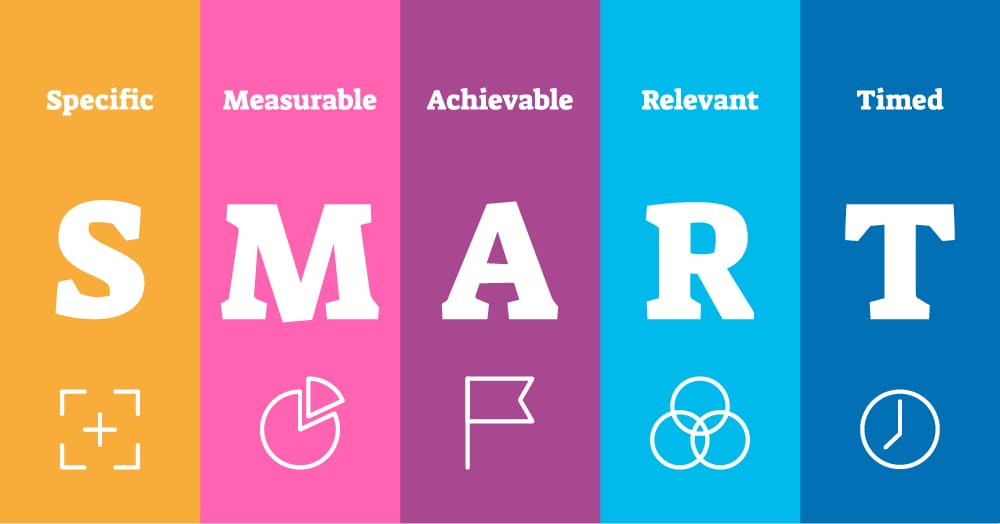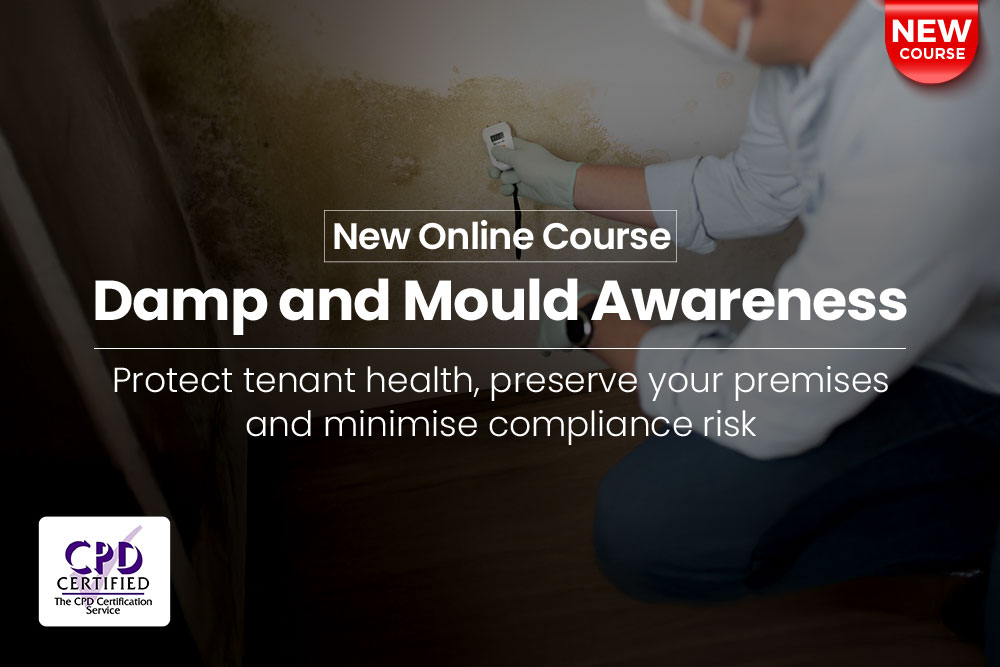
We all have at least one thing we want to be better at. But we often set our sights too high without a clear idea of where to start or what to do to realise our ambition. So, we stick to what we know and put off our attempts at self-improvement until some other time, which never seems to come around.
There’s a way around this familiar routine. Set a personal development goal and plan how to achieve it.
This guide explains how to set realistic targets, get started and stick with them long enough to see results. It also offers five examples of what you can do if you’re looking to grow your skills
What is the Meaning of Personal Development?
Personal development is self-improvement. It’s looking at something you want to get better at and working towards that end.
People use the term when discussing their career or other professional ambitions, which isn’t wrong. Personal development doesn’t have to be related to your work. There is a lot of crossover between personal and professional development goals, however. Making progress in any area of your life can positively impact your career.
What are Personal Development Goals?
Personal development goals are the specific aims you want to achieve. And they work best when you have a pre-defined outcome that you set.
Some examples of personal development goals include getting healthier or learning a new language.
While there are some generally agreed-upon principles when setting your goals, timeframes and objectives are entirely up to you.
How to Set Your Goals
Start with Self-Assessment
You won’t be able to achieve your personal development goals if they’re not meaningful to you, so start by looking at yourself and figuring out what you want to improve.
Maybe you’ll settle on something quite big, like getting healthier, which is admirable but a bad example of an achievable goal. It lacks a defined outcome since ‘healthier’ is a relative term. And without a clear endpoint, planning how you will get there is impossible.
Starting smaller and more specific (remember that word) with your goals is always better.
Say you do want to focus on your health. Start by determining what ‘healthier’ means to you. Is it running a marathon or doing a five-minute stretching routine every day? They’re both valid goals, but only one will likely be realistic to you and your current activity levels.
Set SMART Goals
Any goal should be SMART, which stands for:
- Specific – it has a clearly defined aim
- Measurable – you can tell when you reach that aim
- Achievable/Attainable – it’s actually realistic
- Relevant – it means something to you
- Time-bound – there’s a deadline which you set
Using the SMART framework makes it more realistic that you’ll actually achieve your goals. Let’s look back at one of the other examples of personal development goals – learning a language, which is another aim you shouldn’t emulate. Because learning a new language is about as far from a SMART goal as possible. Instead, you should try to:
- Learn the 100 most common words in your chosen language (Specific)
- Score at least 90/100 when tested (Measurable)
- Start with 100 words, as that’s more realistic than learning a new language (Achievable)
- Use everyday vocabulary to start developing fluency (Relevant)
- Revise 25 words a week for the next month (Time-bound)
Doing all of the above will help you towards your overall aim – to speak another language – but it’s much more attainable and means you’re more likely to stick with it and make meaningful progress.

Celebrate Progress
Getting out of your comfort zone and putting in the work is always necessary for your development. So, sticking with a goal makes you more likely to achieve it.
However, the relationship between progress and effort is a feedback loop. Putting in the effort and making incremental improvements motivates you to put in more effort in the future.
It’s not easy to do this, however, as our brains are prone to negativity bias, i.e., they focus on what goes wrong before recognising what goes right. This tendency towards pessimism is demotivating and can often make it feel like goals are unattainable and not worth pursuing.
Going smaller (and more achievable) with your goals helps overcome this bias, but you can also work against it yourself. Recognise progress, no matter how small, and celebrate it. Psychologists have noted that these positive feelings build self-esteem and make you more likely to keep working towards your goals.
Use the Power of Habits
According to psychologists, people often misunderstand what actually drives their behaviour. A recent study looked at why people commonly drink coffee in the morning. Initially, the answer seems obvious – people are still sleepy when they wake up, so they seek a dose of caffeine to help them get going. However, this didn’t exactly match what the researchers discovered.

It was found that study participants drank coffee regardless of feelings of fatigue. Making a morning coffee was driven more by habit than actual need. You can apply the same thinking to personal development. Make progress a habit, and you’ll keep up your efforts without thinking about it or having to find motivation.
How to Make It a Habit
Start with the most minor thing you can do while progressing towards your goal. Let’s return to our ‘learn a new language’ example since it’s already been turned into a SMART target.
The most minor thing you could do is learn one new word at a time. This might initially throw off your planned timeline, but starting as small as possible will make it easier to maintain consistency and build momentum.
It’s even easier to do this if you attach an action to another trigger. For example, you could look up your new word on your commute or while waiting for the kettle to boil. Connecting an act to another prompt like this makes it more likely to become a habit.
20 Examples of Common Personal Development Goals
1. Develop Your Communication Skills
Why – Communication skills let you express yourself and influence others to be a better team member. Good communication is also essential for building personal and professional relationships.
How – One of the best ways to become a better communicator is to become a better listener. Practice active listening in your conversations and focus on what the other person is saying, not how you’re going to respond.
2. Manage Your Time Better
Why – Time management is essential for productivity and work-life balance, yet it’s one of the most neglected personal development goals.
How – Use gathering points to collect similar tasks together in one place (real or digital). You can then prioritise your attention and keep on top of things.
3. Take on a New Responsibility
Why – Taking on a new work responsibility is one of the best ways to grow. It’ll force you to develop new skills and leave your comfort zone. It might also lead to a promotion.
How – There’s no universal starting point here. Choose a new responsibility and then go after it. Just remember to start small and ensure you can fit it into the SMART framework.
4. Keep Things Tidy
Why – A tidy workspace helps improve focus and productivity.
How – Set aside three to five minutes daily to clean and organise your workstation. A consistent cleaning schedule also prevents clutter and saves time in the long run.
5. Improve Emotional Intelligence
Why – Emotional intelligence helps you understand and manage your emotions and empathise with others, improving relationships and decision-making.
How – Practice self-awareness by journaling your emotions and reactions. Seek feedback from others and apply active strategies for managing stress and conflict constructively.
6. Build a Morning Routine
Why – A structured morning routine sets a positive tone for the day, enhancing focus and productivity.
How – Start small by incorporating one new habit, such as meditation, stretching or reviewing your goals for the day. Gradually build a routine that aligns with your priorities.
7. Develop Resilience
Why – Resilience helps you adapt to challenges, reduce stress and bounce back from setbacks.
How – Practice mindfulness to manage stress, reframe negative thoughts, and focus on solutions rather than problems.
8. Strengthen Critical Thinking
Why – Critical thinking helps you analyse situations objectively, make better decisions and solve problems effectively.
How – Challenge assumptions, ask questions, and evaluate evidence before making conclusions. Engage in puzzles or logic exercises to hone this skill.
9. Build a Gratitude Practice
Why – Focusing on gratitude boosts your mental health, reduces stress and increases happiness.
How – Write down three things you’re grateful for each day, or take a moment to reflect on positive moments during challenging times.
10. Improve Physical Fitness
Why – Regular exercise boosts energy, mental clarity and overall health.
How – Start with small, specific activities like walking 30 minutes daily, doing yoga twice a week, or following a beginner workout plan.
11. Cultivate Better Sleep Habits
Why – Proper sleep is essential to overall wellbeing, and it should help you achieve your other personal development goals.
How – Set a consistent bedtime, limit screen time before bed, and create a relaxing evening routine.
12. Practice Public Speaking
Why – Public speaking boosts confidence and improves your ability to communicate ideas effectively in professional and personal settings.
How – Practice with friends and family or volunteer to give presentations at work.
13. Create a Personal Budget
Why – Managing your finances effectively reduces stress and helps you achieve your long-term goals.
How – Track your expenses, set savings goals and create a realistic budget that aligns with your priorities.
14. Volunteer for a Cause You Care About
Why – Volunteering lets you develop new skills and expand your network while giving back.
How – Choose a cause you’re passionate about and commit to a specific number of volunteer hours per month.
15. Develop a New Creative Hobby
Why – Creative activities reduce stress, enhance focus and boost self-esteem.
How – Try something new, like painting, photography or playing an instrument. Set small goals, such as dedicating an hour weekly to practice.
16. Enhance Your Digital Skills
Why – Developing tech skills opens up new opportunities and keeps you competitive in the modern workplace.
How – Learn a specific software, coding language or digital tool relevant to your field through online courses or tutorials.
17. Read More Books
Why – Reading expands your knowledge, reduces stress and enhances creativity and focus. Books related to your personal development goals may also help achive them.
How – Set a goal to read one book per month or listen to audiobooks during your commute. Choose topics that inspire or challenge you.
18. Build Better Relationships
Why – Strong relationships improve mental health and create a support network for personal and professional challenges.
How – Reach out to friends and family more often, set aside time for meaningful conversations, and actively show appreciation.
19. Develop Assertiveness
Why – Being assertive helps you communicate your needs and boundaries effectively, which can improve relationships.
How – Practice saying “no” when necessary, express your thoughts respectfully and take small steps toward standing up for yourself.
20. Take a Training Course
Why – A training course is an excellent development goal since learning a new skill helps you grow personally and professionally. Good training courses are already mapped out using the SMART framework, so pick the right one and keep at it.
How –To help you develop, we offer a range of HR compliance courses, from conflict resolution to time management. (There’s even a course on objective setting if you’ve already forgotten the rest of the advice in this guide.) You’ll be able to find a course that will help you on your development journey, and since they’re all online, it’s easy to fit them into your schedule and make learning a habit.






















































































































































































































































































































































































































































































































































































































































































































































